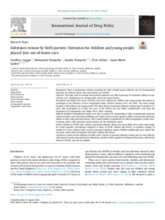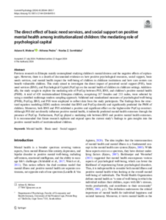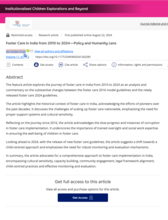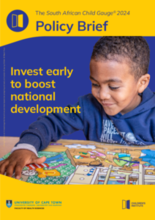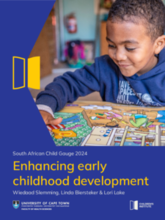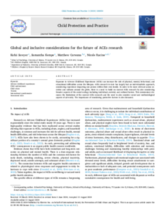Displaying 151 - 160 of 14551
This study aims to examine how parental substance use affects outcomes of Australian children in out-of-home care, adjusting for key demographic, social and system factors.
This South Africa-based paper aims to provide practice guidelines for leaving care that would be useful in real-world settings.
This study aimed to investigate the direct impact of perceived social support, basic need services, and Psychological Capital on the mental health of children in childcare settings in Ethiopia.
This article explores the journey of foster care in India from 2010 to 2024 as an analysis and commentary on the substantive changes between the foster care 2016 model guidelines and the newly released foster care 2024 guidelines.
This policy brief presents the key findings of the 2024 Child Gauge which focuses on early childhood development and the full book can be accessed at www.ci.uct.ac.za.
This 17th issue of the South African Child Gauge focuses attention on early childhood development – from conception until the start of formal school. It collates the latest evidence to reflect on progress, identify challenges and point the way forward.
Join the Children's Institute, University of Cape Town, on Wednesday 21 August, for the launch of the South African Child Gauge 2024
Doing away with the rule that limited foster care to married couples, the Women and Child Development (WCD) Ministry has now permitted single individuals — including those who are unmarried, widowed, divorced, or legally separated — aged 35 to 60 years, to foster a child and adopt after two years, according to the recently released revised Model Foster Care Guidelines.
ISPCAN SWEDEN2024 brings together the brightest minds in child protection from every sector to innovate and share best practices. Join us to keep pushing the boundaries of research and practice to ensure that all children have the chance to thrive no matter what their experience.
This commentary discusses the limitations of the current Adverse Childhood Experiences (ACEs) research and the need to also consider social and methodological aspects of adversity. The importance of considering protective factors is also discussed.

